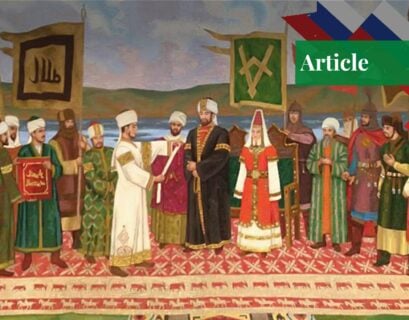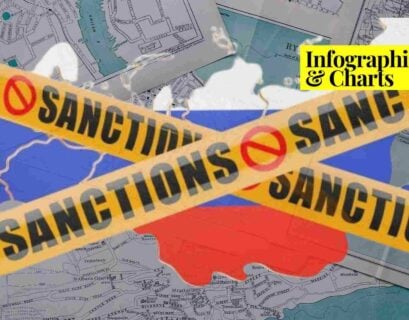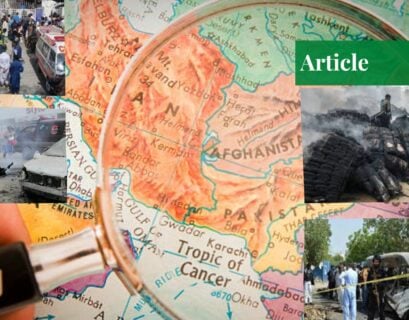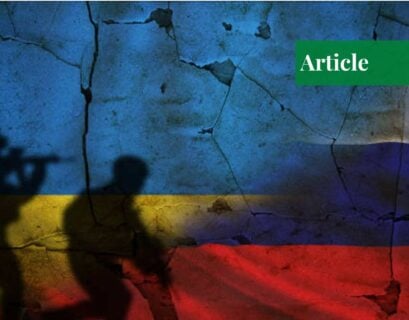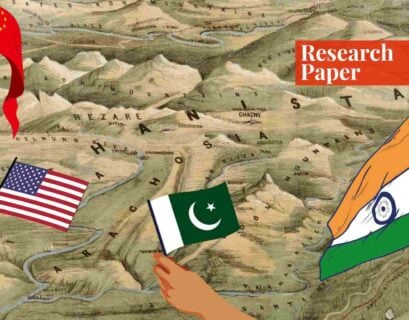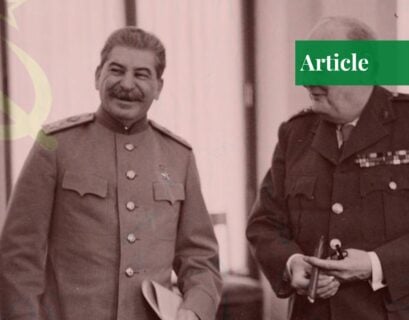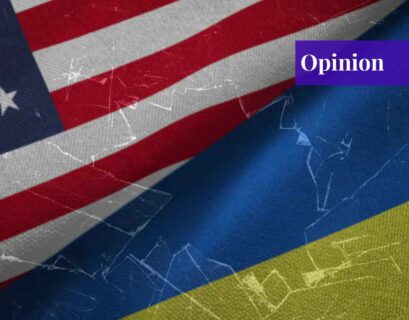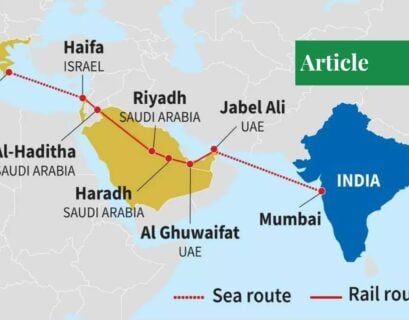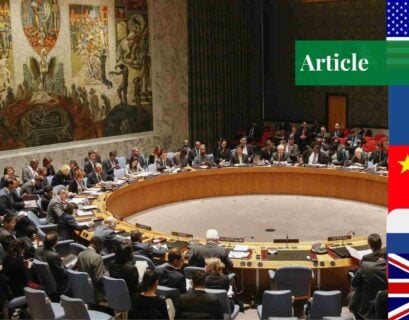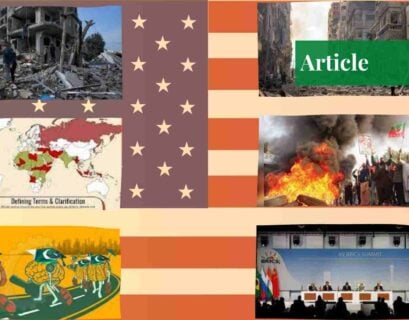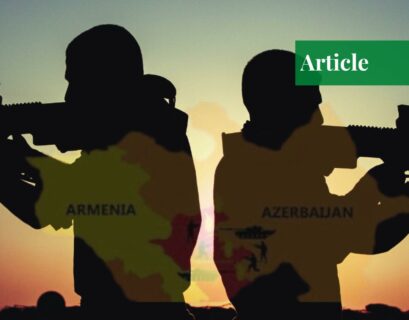Maskirovka, A Russian Military Strategy—Is the Element of Surprise Still Relevant?
Maskirovka has always been an elusive term, often times used crudely at any Russian perceived act, but there is more depth, complexity, and meaning to maskirovka than some immoral Russian trickery.
It is a military art, deemed reliable since its first use against the Mongols. It is a way of war, and along with it comes the element of surprise, an under-rated part of maskirovka.
Alishbah Syed explores the concept of maskirovka and the continuing relevance of surprise in it.
Tales from the Steppes: The Presence of Muslims & Islam in Russia
The history of the Muslim communities in Russia dates farther back than the collapse of the Soviet Union.
This article delves into the rich heritage of Islamic traditions in Russia, from the early interactions with Tatar Muslims to the modern-day expressions of faith among diverse Muslim communities.
Fatimah Naeem examines the challenges and opportunities faced by Muslims in the Russian state, including issues of religious freedom, cultural integration, and political representation.
She also highlights the contributions of Islam to Russian culture and society, showcasing the resilience and diversity of Muslim identities within the Russian Federation.
The Iran-Israel War: A False Front of Power
The Iran-Israel war has been making headlines in April, and rightly so—the fear of a WWIII happening has the world glued to screens now, more than ever before.
Lt Gen (R) Tariq Khan has a different view of these attacks between Iran and Israel. He deems them only to be an act; a play that appears to show both countries as protagonists.
The Most Sanctioned Countries Worldwide
Sanctions have been used as a popular tool by the international community to pressure countries. Since its invasion of Ukraine in 2023, Russia has become the most sanctioned country in the world. Other sanctioned states include Iran, North Korea, Syria, and Belarus.
Terror Attacks in Pakistan: Role of Afghanistan in Promoting Instability
Since the American withdrawal from Afghanistan in 2021, Pakistan has consistently voiced its concern regarding the neighboring country’s harboring of terrorists. The recent surge in terror attacks in Pakistan, Iran, and Russia has reignited this concern, prompting questions about American interests in fostering instability in the region.
Russia’s War in Ukraine: Shrouded in Western Hypocrisy
In his analysis, Lt Gen (R) Tariq Khan discusses the glaring hypocrisy of the West amid Russia’s war with Ukraine. He highlights the stark contrast in Western response, noting that despite its apathy towards conflicts in Iraq, Palestine, and Bosnia, the West has now decided to raise its voice for Ukraine simply because it’s considered “civilized,” unlike the others. The author critiques Western involvement and its portrayal of Ukraine as a victim, while predicting a grim future for the country. He emphasizes the need for a fairer global order based on equality and justice.
[Video] The Future of Shipping | Egypt’s Suez Canal vs Israel’s Ben-Gurion Canal
The Suez Canal blockage in 2021 had a significant impact on the global economy, which prompted a search for alternative trade routes.
This video explores the Northern Sea Route (NSR) and Israel’s Ben-Gurion Canal as potential alternatives to the Suez Canal, analyzing their benefits, challenges, and geopolitical implications.
It contemplates the role of major powers like Russia and China in shaping these trade routes and considers the future of global shipping and trade.
The New Great Game: A Pakistani Perspective
Lt Gen Tariq Khan provides an in-depth account of the historical rivalry known as the “Great Game” that took place between the British and Russian empires in the subcontinent during the 19th century.
In his paper, he explains that the withdrawal of the US from Afghanistan created a power vacuum, which set the stage for a “New Great Game” in the South Asian region.
This region is of immense importance due to its geo-strategic location which is central to China, Central Asian republics, Iran, and Pakistan.
The Anglo-Soviet Invasion of Iran
The Anglo-Soviet invasion of Iran officially began on 25th August 1941 and concluded on 31st August 1941, a day after the Iranian government had agreed to surrender and establish a ceasefire.
However, the invasion was more than a mere military operation; it assisted in setting the stage for Iran’s role in global politics along with shifting the perspective of the Iranian government and its populace concerning the West.
Trump’s Ukraine Policy: From Allies to Ambiguity
As US elections loom, people have started to pay closer attention to candidates and their policies regarding pressing global issues.
Sanan Lashari gives his candid opinion as he explains Donald Trump’s stance regarding the war in Ukraine.
Although Trump has publicly wished for the war to end, his sentiments are troubling for the Western world as he stated he would endorse a Russian invasion of Ukraine if the latter did not pay its share of the NATO defense budget.
From Swords to Drones: The Impact of Technology on Warfare
Over time, warfare has evolved from primitive conflicts to complex, organized endeavors, heavily influenced by technological advancements.
From early weaponry like swords to modern innovations such as drones and cyber warfare, technology has continued to shape military strategies and tactics.
The manipulation of the internet and emerging technologies like drones, missile shields, and hacking are shaping modern warfare, emphasizing the importance of technological superiority in military operations.
Insight into the India-Middle East-Europe Economic Corridor (IMEC)
The India-Middle East-Europe Economic Corridor (IMEC) is positioning itself as a competitor to China’s Belt and Road Initiative (BRI). Minahil Khalid expands on how this initiative materialized after the September 2023 G20 summit. IMEC holds significant economic and strategic importance as it connects India, the Arabian Gulf, and Europe, thereby establishing a trade route with the potential to reshape global trading dynamics. The impact of IMEC on Pakistan needs to be assessed, considering that this corridor may pose challenges to the success and involvement of the China-Pakistan Economic Corridor (CPEC) in the region.
Coloniality of the P5: Decoding the Power Dynamics in the UNSC on the Israel-Palestine Conflict
Fatima Arshad Warraich shares how the permanent membership status and the absolute and unaccountable power to veto wielded by the P5 nations in the UNSC undermines democratic principles of the majority. She also adds that it compromises the Council’s ability to impartially address and maintain global peace and security.
She illustrates this by citing how the US, one of the P5 members of the UNSC, vetoed the resolution that demanded immediate humanitarian ceasefire in Gaza on grounds of inadequate condemnation of Hamas and the ceasefire’s inability to create durable peace in the region.
The World in 2023: A Turbulent Year
The turbulent year of 2023 has finally come to an end. The year was marked by numerous conflicts, tragedies, clashes, and chaos around the globe. Unfortunately, the year 2023 has passed instability and chaos to the coming year. Notably, the United States played the key role behind most of these conflicts due to its economic interests.
Nagorno-Karabakh: A Conflict with No Easy Answers
Nagorno-Karabakh, a landlocked mountainous territory, has been the source of a long-standing conflict between Armenia and Azerbaijan. While military confrontations have simmered down, peace in the region appears distant.
This piece will help you understand the causes and consequences behind the conflict as well as the stances of countries like the US, Russia, Turkey, and Pakistan.
Paradigm Shift’s Magazine: November 2023 Edition
The November 2023 edition of the Paradigm Shift magazine contains 12 handpicked pieces. These cover the genocides in Congo and Palestine, the geostrategic importance of the South China Sea, Hindu nationalism in India, and the role of AI in modern warfare.
Russia and Myanmar’s Maritime Exercises 2023
In the shifting tides that are the game of international relations and world politics, Russia and Myanmar have been conducting maritime exercises that represent not only a union of naval capabilities but also a shared commitment to managing the complexity of global geopolitics.
Their collaborative maritime endeavors reverberate far beyond naval manoeuvers, creating a vivid portrayal of diplomatic endurance, strategic vision, and the eternal hunt for synergy in an ever-changing geo-political environment.

